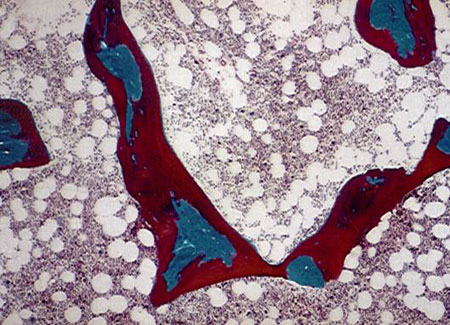Vitamin D – skeletal and non-classical effects

Vitamin D insufficiency is common in Denmark. Using data from large cohort and cross-sectional studies, we explore causes and consequences of low vitamin D levels.
Vitamin D is important to calcium homeostasis and bone metabolism. Severe deficiency causes osteomalacia, whereas insufficiency is known to increase bone turnover and risk of fracture. In a recent study, we showed that the deleterious effects of low vitamin D levels on bone is highly dependent on the PTH response, as only those with elevated PTH levels seem to experience adverse effects on bone due to low vitamin D levels (Rejnmark et al. 2011)
Together with international researchers we have explored effects of supplementation with calcium and vitamin D. The individual patient data analysis included more than 50,000 randomized participants and showed a significantly reduced risk of fractures as well as a significantly reduced mortality in elderly people receiving calcium and vitamin D supplementations (DIPART group et al. 2010; Rejnmark et al. 2012)
We explore possible non-skeletal effects of vitamin D in patients with adiposity, primary hyperparathyroidism, and Grave’s disease as well as in pregnant women. Outcomes include effects on muscle function, inflammation, autoimmunity and quality of life www.clinicaltrials.gov.
We are able to measure plasma levels of 25OHD2 and 25OHD3 by isotope dilution liquid chromatography–tandem mass spectrometry(LC-MS/MS) considered to be the gold standard for vitamin D measurement. We are currently developing methods for measurement of vitamin D levels in milk and fat-tissue in order to be able to assess concentrations in different body compartments.
Contacts
Lars Rejnmark, Associate professor, MD, PhD, DMSci, rejnmark@post6.tele.dk